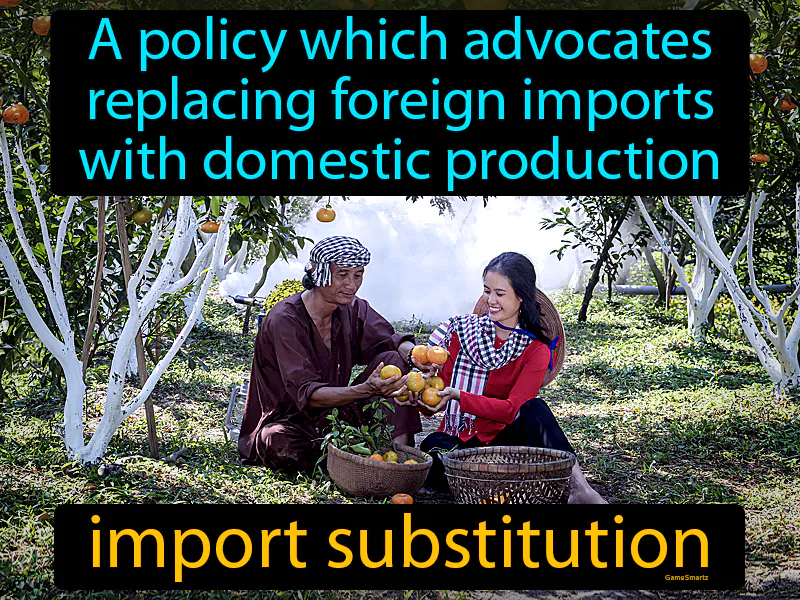Import Substitution
Import Substitution: Easy to understand
Import substitution was a strategy used by many developing countries after 1945 to reduce dependency on foreign goods by producing similar products locally. This approach was important because it aimed to boost local industries, create jobs, and stabilize economies that were often reliant on imports. It responded to the challenges of economic dependence and vulnerability to global market fluctuations. Today, import substitution still matters as it encourages local entrepreneurship and can lead to more sustainable economies. For example, if a country starts producing its own solar panels instead of importing them, it could lower costs, provide jobs, and make solar energy more accessible to its citizens, benefiting both the economy and the environment.

Practice Version

Import Substitution: A policy which advocates replacing foreign imports with domestic production. Import substitution. Historically, import substitution refers to a strategy where countries focus on producing goods domestically to reduce reliance on foreign imports and boost their own economies.